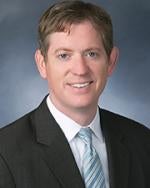Summary
Reversing long-standing Federal Circuit precedent, the United States Supreme Court has now held that a patentee extinguishes its patent rights on a product upon its sale of that product, regardless of (1) whether the patentee placed a restriction on the sale (prohibiting reuse or resale), or (2) whether the sale occurred within the United States.
In Depth
Overview
On May 30, 2017, the United States Supreme Court took a hard line on patent exhaustion in Impression Products v. Lexmark International. Reversing long-standing Federal Circuit precedent, the Supreme Court has now held that a patentee extinguishes its patent rights on a product upon its sale of that product, regardless of (1) whether the patentee placed a restriction on the sale (prohibiting reuse or resale), or (2) whether the sale occurred within the United States. The Supreme Court’s decision, authored by Chief Justice Roberts, was unanimous on this first issue, while Justice Ginsburg dissented with respect to the second issue. Justice Ginsburg took the position that a foreign sale does not exhaust a US inventor’s US patent rights.
Under the principle of “patent exhaustion,” a patentee extinguishes their patent rights on a product once it makes a sale of that product. The purchaser is thereafter free to dispose of the product in any way they see fit without any obligation to the patentee. The Federal Circuit previously held in Mallinckrodt v. Medipart, however, that patent exhaustion applies only where the sale was unrestricted / unconditional. In other words, the patentee could reserve some patent rights by conditionally selling a product, with an express restriction precluding the ability of the purchaser to reuse or resell the product to downstream users. Additionally, the Federal Circuit previously held in Jazz Photo v. International Trade Commission that the unrestricted sale had to occur within the United States, as the United States did not recognize “international exhaustion.” The Supreme Court has now rejected both of those exceptions.
In reversing the Federal Circuit’s holding, Justice Roberts concluded:
Allowing patent rights to stick remora-like to that item as it flows through the market would violate the principle against restraints on alienation. Exhaustion does not depend on whether the patentee receives a premium for selling in the United States, or the type of rights that buyers expect to receive. As a result, restrictions and location are irrelevant; what matters is the patentee’s decision to make a sale.
The Court now has made clear that if a patent holder sells an article that embodies the claims in the patent, it may no longer extend the patent rights in that article. Mallinckrodt and Jazz Photo are no longer good law. This means that any patent holder who now tries to impose a post-sale restriction on an article that either the patent holder or a licensee sells, can no longer rely on using patent remedies to enforce that restriction and must now carefully consider whether any other legal theory can support the restriction. Perhaps more importantly, such a patent holder must now consider whether others can assert that any such restriction could raise legal issues under other substantive areas of the law, such as competition or false advertising law.
Background
Lexmark is a printer manufacturer that makes and sells patented toner cartridges for its printers to customers within and outside the United States. Lexmark offers toner cartridges to consumers purportedly subject to a patent license that has a single-use/no-resale requirement.
Impression Products is a recharger of toner cartridges that acquires spent Lexmark toner cartridges sold in the United States and internationally, refurbishes them and sells them for use with Lexmark printers in competition with new and refurbished cartridges sold by Lexmark and other rechargers.
In 2010, Lexmark brought suit against Impression Products and other rechargers for patent infringement with respect to two groups of cartridges: (1) cartridges sold in the US purportedly subject to a post-sale single-use/no-resale restriction, and (2) all cartridges sold outside the US. First, Lexmark contended that Impression Products infringed Lexmark’s patents because Impression Products contributed to the breach of the single-use/no-resale requirement of the purported patent license that arose from the sale of toner cartridges to consumers in the US when Impression Products refurbished and resold the cartridges. Second, Lexmark contended that it never gave anyone authority to import cartridges they sold abroad, and so Impression Products infringed its patent rights by importing those cartridges. Impression Products moved to dismiss Lexmark’s claims on the grounds that Lexmark exhausted its US patent rights in the cartridges by its initial sales of cartridges from Lexmark to distributors, who in turn resold to consumers.
Impression Products argued that Lexmark’s single-use/no-resale requirement was an invalid post-sale restriction under the Supreme Court’s decision in Quanta which, Impression Products argued, implicitly overruled the Federal Circuit’s earlier decision in Mallinckrodt. Second, Impression Products argued that Lexmark exhausted its patent rights as to cartridges first sold abroad under the Supreme Court’s copyright exhaustion analysis in Kirtsaeng which, Impression Products argued, implicitly overruled the Federal Circuit’s decision in Jazz Photo.
Both parties appealed giving rise to a sharply divided en banc decision from the Federal Circuit reaffirming the Federal Circuit’s prior rulings in Mallinckrodt and Jazz Photo that (1) a seller can use its patent rights to block resale and reuse of a product, and (2) authorized sales of a product abroad does not exhaust the US patent rights associated with that product.
Analysis
The Supreme Court reversed the Federal Circuit, finding that Lexmark exhausted its US patent rights at the moment it sold its patented toner cartridges to customers: (1) in the United States, subject to a post-sale single-use/no-resale restriction, and (2) outside the United States. With this decision, the US Supreme Court has now established a bright line rule with respect to patent exhaustion.
Cartridges Sold in the United States Subject to Post-Sale Restrictions
The Court unanimously held that a patentee’s decision to sell a product exhausts all of its patent rights in that item, regardless of any post-sale restrictions the patentee purports to impose. Therefore, even if the post-sale single-use/no-resale restrictions in Lexmark’s contracts with its customers were clear and enforceable under contract law, they do not allow Lexmark to retain patent rights in an item it has decided to sell. As a result, Lexmark cannot enforce such restrictions in its contracts through patent infringement lawsuits.
According to the Court, to hold otherwise and extend patent rights beyond the first sale “would clog the channels of commerce, with little benefit from the extra control that the patentees retain.” The Court cited to a string of cases beginning in 1918 and culminating in Quanta for the proposition that even when a patentee sells an item subject to an express, otherwise lawful restriction, the patentee does not retain patent rights in that product. Relying on this line of precedent, the Court found that Lexmark had exhausted its US patent rights in the cartridges at the moment it sold them to customers in the United States.
The Federal Circuit had expressed concern below that preventing patentees from reserving patent rights when they sell goods would create an artificial distinction between those sales and sales by licensees. For example, patentees often license others to make and sell their products, and may place restrictions on those licenses. The Federal Circuit had interpreted the Court’s decision in General Talking Pictures Corp. v. Western Electric Co. as holding that patentees can use licenses to impose post-sale restrictions on purchasers that are enforceable through patent infringement suits. Therefore, the Federal Circuit concluded it would not make sense to prevent patentees from doing that when they sell directly to customers.
The US Supreme Court determined that the Federal Circuit’s “concern [was] misplaced.” First, a license is different than a sale and does not implicate the same concerns about restraints on alienation. Second, a patentee’s authority to limit licensees does not mean that patentees can use licenses to impose post-sale restrictions on purchasers that are enforceable through the patent laws. In General Talking Pictures, the issue was that the licensee knowingly made sales outside the scope of its license. Therefore, according to the Court, General Talking Pictures stands for the principle that, if a patentee has not given authority for a licensee to make a sale, that sale cannot exhaust the patentee’s rights. However, if a licensee complies with the license when selling the item, then the Court would treat the licensee’s sale, for purposes of patent exhaustion, as if the patentee made the sale itself.
Cartridges Sold Outside the United States
The Court also held (7-1) that an authorized sale of a patented item outside of the United States exhausts all rights under the Patent Act. The Court based its decision on its analysis of copyright exhaustion under the “first sale doctrine” in Kirtsaeng, in which the Court held that the first sale doctrine applies to copies of works made and sold abroad.
Lexmark argued that because the Patent Act only limits the patentee’s “right to exclude others” to acts that occur in the United States, there was no patent exhaustion from sales abroad because there were no patent rights abroad to exhaust. However, the Court noted that US copyright protections also do not exist outside the United States. The Court held that patent exhaustion is triggered when a patentee decides to sell an item for whatever fee it deems appropriate, even if that sale is outside the United States and the fee is less than what the patentee would have obtained from a sale in the United States.
The United States government, as an amicus, had proposed a middle-ground position of presumptive international exhaustion: that “a foreign sale authorized by the US patentee exhausts US patent rights unless those rights are expressly reserved.” However, the Court declined to adopt the government’s position, finding that it lacked consistent case law as a basis and that allowing patent rights to stick to an item “as it flows through the market” would run afoul of the common law principle against restraints on alienation.
Practice Note
The US Supreme Court’s decision brings much-needed clarity to the state of the patent exhaustion doctrine in the United States. This decision means that any post-sale restraints on patented products may not be enforced through patent law. Rather, such restraints would be subject to analysis under, among others, contract, antitrust and tort law. This decision should cause companies that license patents to consider the implications of patent exhaustion on their business models, in addition to any legal risks that may arise from licenses that relied on Mallinckrodt or Jazz Photo. This case is a landmark decision on patent exhaustion that will have broad implications in the use of patent rights.





 />i
/>i
